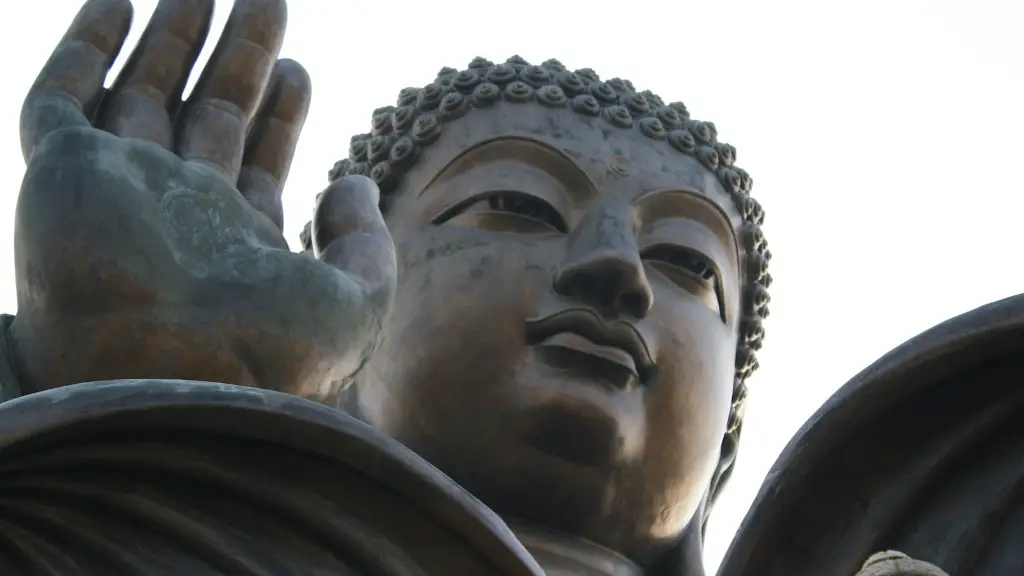Zen Buddhism has had a profound impact on Japanese culture. It has helped shape Japanese aesthetics and values, and has even influenced the way Japanese people think about themselves and their place in the world. Zen Buddhism has also had a significant impact on Japanese art, architecture, and literature.
Zen Buddhism has had a profound influence on Japanese culture since it was introduced in the 12th century. It has helped shape many of the country’s most important artistic traditions, such as ink painting, haiku poetry, and the tea ceremony. It has also been a major force in the development of Japanese gardens.
What is the significance of Zen Buddhism on Japanese art?
Zen art is a type of art that is based on the principle of enlightenment. This means that the goal of Zen art is to help the viewer to achieve a state of enlightenment. According to Zen doctrine, everyone has the potential to achieve enlightenment, but not everyone has realized this potential. The difference between buddhas and other people is that buddhas have awakened to their innate enlightenment, and other people have not.
Zen is a Japanese school of Mahayana Buddhism that originated in China as Chan Buddhism. Zen practitioners trace their beliefs to India, but the school’s emphasis on the possibility of sudden enlightenment and close connection with nature are derived from Chinese influences.
Why is Buddhism important to Japanese culture
Buddhist monasteries were established across the country, and they became powerful political players in their own right. Buddhism was also a key driver in fostering literacy, education in general, and the arts in ancient Japan. Monasteries were important political players because they controlled a great deal of land and resources. They also had a great deal of influence over the people who lived on their land. In addition, monasteries were often the only source of education and learning in many parts of the country. Buddhist monks and teachers were responsible for introducing and spreading the religion, as well as for teaching people how to read and write. They also created some of the most beautiful works of art in Japan.
Zen meditation is a key part of martial arts training, as it allows the samurai to access the subconscious mind and instinctive forces that govern action without thought. This can be incredibly helpful in a combat situation, when there is no time to think about what to do next. By accessing the subconscious mind, the samurai can respond to a situation instinctively and without hesitation.
Why did Zen Buddhism appeal samurai?
Zen Buddhism was introduced into Japan from China in the 12th century. The belief that salvation would come from within, as well as the austere and simple rituals, held a great appeal for many samurai. The samurai code of behavior was greatly influenced by Zen Buddhism.
Zen is a school of Mahayana Buddhism that originated in China during the Tang dynasty. The school was later developed into various sub-schools and branches.
When did Zen Buddhism become popular in Japan?
Dogen was a Japanese monk who travelled to China in the 13th century and brought Soto Zen back to Japan. He is considered to be the founder of our school, and one of the great Buddhist philosophers. Zen had a profound influence on Japanese culture as a whole.
Zen was first introduced into Japan in the Asuka period, at a time when there were no set regulations for Zen monastics andChan masters were willing to teach anyone regardless of their buddhist ordination. Zen quickly became popular in Japan, and by the Heian period (794-1185 CE), it had become one of the country’s major religious traditions. Today, Zen remains an important part of Japanese culture, with many Japanese people practicing Zen meditation and participating in Zen Buddhist temples and organizations.
Who brought Zen Buddhism to Japan
Dōgen is considered one of the most important Japanese Buddhist figures of all time. He was responsible for introducing Zen to Japan in the form of the Sōtō school. He was also a prolific writer, and his works are still studied by Buddhists today.
Buddhism has had a profound impact on the societies it has come into contact with. It has challenged social hierarchy, created opportunities for women, and given individuals of all classes a role in spiritual practice. As Buddhism has changed each new society it has touched, so too has it changed itself.
How does Buddhism influence culture?
Buddhism had a great impact on Indian culture and society. It promoted egalitarianism and non-violence along with free will. Even though it has vanished from India, it has impacted the mindset of people as well as intellectual, artistic, literary, and architectural fields.
Buddhism was introduced to Japan in the 6th and 7th century CE from Korea and China. The main reason for this was political, as the Japanese wanted to establish cultural and political ties with these countries. However, Buddhism also had a significant impact on Japanese culture. The imported Buddhist traditions integrated native religious concepts, which led to the development of numerous varieties of a Buddhist-Shinto blend.
What is Zen Buddhism better known for
Zen is a Mahayana Buddhist tradition that emphasizes simplicity, present-moment awareness, nonduality, nonconceptual understanding, and zazen (“just sitting”) meditation—the tradition’s most important practice.
Zen is a great tradition for those seeking a more simplified and present-moment focused approach to Buddhism. The tradition’s most important practice, zazen, is a great way to develop a more nonconceptual understanding of the world and our place in it.
The study suggests that when practiced long-term, Zen meditation improves concentration and emotional regulation. Other potential benefits of Zen meditation include: stress and anxiety reduction and increased self-awareness.
What did Zen Buddhism teach samurai?
Zen Buddhism was introduced to Japan in the 12th century and quickly gained popularity among the samurai class. From its teachings, samurai learned how to meditate as a means of reaching enlightenment. Zen Buddhism played a significant role in the development of bushido, and its influence can still be seen in many aspects of Japanese culture today.
Buddhism was welcomed by the ruling nobles of Japan as its new state religion, but it did not initially spread among the common people due to its complex theories. There were a few initial conflicts with Shinto, Japan’s native religion, but the two religions were soon able to co-exist and even complement each other.
Conclusion
There is no one answer to this question as the impact of Zen Buddhism on Japanese culture has been both wide-ranging and complex. Some of the areas where it has had an influence include the arts, literature, education, architecture, and gardening. In many cases, the impact of Zen Buddhism has been to help create a more refined and sophisticated culture.
Zen Buddhism has affected Japanese culture in a number of ways. It has helped shape the country’s art, literature, and even architecture. It has also had an impact on the way Japanese people think about life and death.



